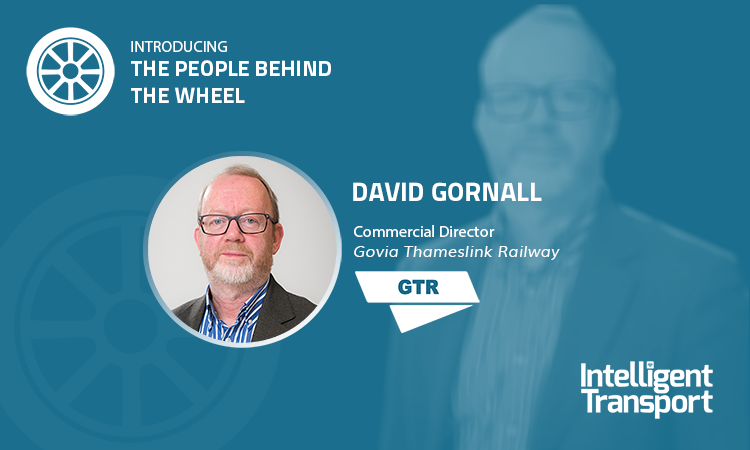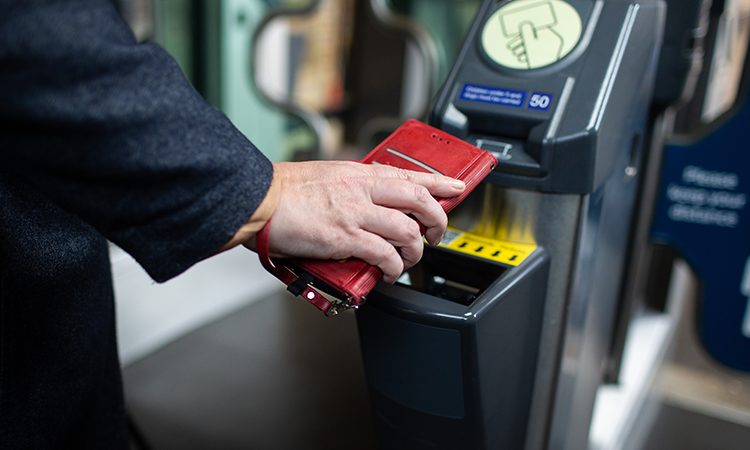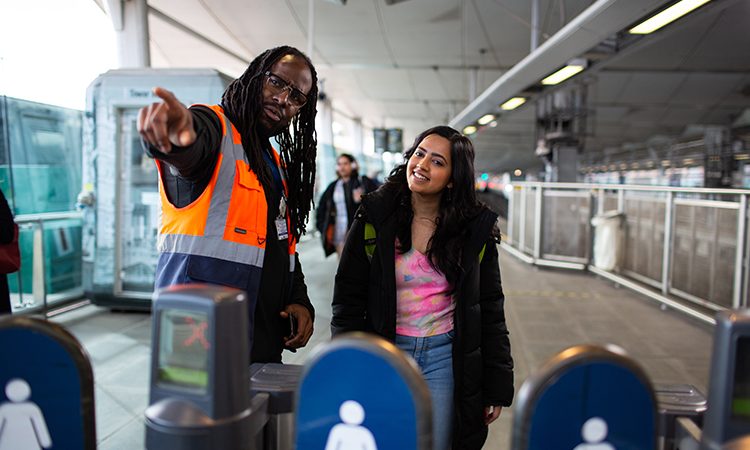The people behind the wheel: David Gornall’s story, Govia Thameslink Railway
- Like
- Digg
- Del
- Tumblr
- VKontakte
- Buffer
- Love This
- Odnoklassniki
- Meneame
- Blogger
- Amazon
- Yahoo Mail
- Gmail
- AOL
- Newsvine
- HackerNews
- Evernote
- MySpace
- Mail.ru
- Viadeo
- Line
- Comments
- Yummly
- SMS
- Viber
- Telegram
- Subscribe
- Skype
- Facebook Messenger
- Kakao
- LiveJournal
- Yammer
- Edgar
- Fintel
- Mix
- Instapaper
- Copy Link
Posted: 16 November 2023 | David Gornall - Govia Thameslink Railway | No comments yet
For the latest instalment of Intelligent Transport’s exclusive ‘The people behind the wheel’ series, David Gornall, Commercial Director at Govia Thameslink Railway, discusses his role, experiences and the dynamic challenges of leading the revenue function in the UK’s largest train operating company, emphasising the importance of innovation, adaptability and a customer-centric approach in the transport industry.


Can you tell us about your role at Govia Thameslink Railway?
As the Commercial Director at Govia Thameslink Railway (GTR), I am responsible for the revenue function. This includes fares and ticketing, station retailing, online sales and strategic partnerships with other retail distribution channels. We are the largest train operating company (TOC), with a farebox and ancillary income in excess of £1 billion. We provide ticket retailing solutions for our customers across over 240 stations in London and the Southeast. My team is also responsible for combatting and prosecuting fraud, revenue protection and for the management of our property portfolio of retail tenants and our 150 car parks.
What inspired you to seek a career in the transport industry?
The move from airport to train seemed logical… and I was excited by the challenges that faced me in Birmingham when I joined London Midland”
Having spent the previous decade in private equity consulting, I was working on turnarounds: first, global transportation logistics, then a large UK parcel delivery company (which we had sold to UPS in the U.S.), closely followed by managing and then selling a regional UK passenger airport. The move from airport to train seemed logical, at least that’s what the head-hunters told me, and I was excited by the challenges that faced me in Birmingham when I joined London Midland. A move to GTR 18 months later has proven to be amazing.
Have you experienced any challenges in your role and, if yes, how have you overcome them?
I’ve faced the challenges many people encounter when delivering one in five of the UK’s rail services across 11 counties, dealing with the sheer scale of the organisation and operational intricacies. My approach involves maintaining an open-mind and working at pace to identify and deliver pragmatic solutions.
We needed real agility here at GTR to do this, to respond to the significant change in dealing with new technology and new retailers from outside the rail industry”
Post-COVID-19, working patterns in the Southeast changed and immediately impacted rail revenues, which are particularly important for our company, as the majority of our customers are commuters. This coincided with a shift in customers adopting new technology and a move to buy tickets from other retailers. We had predicted a move from the ‘orange’ paper magnetic stripe tickets to barcodes held on smartphones and responded quickly. We pushed hard and installed barcode readers on each and every one of our 700-plus ticket gates across the network (that’s 98 of our stations). We needed real agility here at GTR to do this, to respond to the significant change in dealing with new technology and new retailers from outside of the rail industry.


Credit: Govia Thameslink Railway
Has a career in transport changed your perception of the industry as a whole?
It is only when you immerse yourself in the industry fully, that you understand the history, the provenance of certain ways of working and the wealth of experience of the teams delivering the front line service for passengers”
Yes, it has. From the outside looking in, passenger transport appeared complex and impenetrable, and it is only when you immerse yourself in the industry fully, that you understand the history, the provenance of certain ways of working and the wealth of experience of the teams delivering the front line service for passengers. I might have previously been puzzled at why and how we do certain things today, but now know that it works. That’s not to say that it can’t be challenged.
What would be the top three highlights of your career in the industry to date?
For me, it has to be developing and launching the first ‘Tech Accelerator’ in rail, called London Midland Labs. This was followed by the larger, well received ‘Billion Journey Project’ at the Go-Ahead Group. These are collaborative schemes that partner with innovative start-ups that are looking to shake up the customer experience of travel. The Billion Journey Project is now the UK’s largest transport proof of concept programme. It helps start-ups and scale-ups to implement their product across the rail and bus industry, with the aim of improving the experience of a billion passenger journeys a year.
Where do you see yourself in five years’ time?
I hope to be working on the continuous improvement of fully integrated accessible public transport”
I hope to be working on the continuous improvement of fully integrated accessible public transport. I think that, by leveraging some of the step changes in technology and customer experience from other modes, we can dynamically link multiple modes of transport to better serve all customers’ needs. Why shouldn’t a customer demand a simple method of finding, buying and then experiencing all modes of their door-to-door transport journey? This might include, taxi, cycle, e-bike, e-scooter, car hire, bus, coach, rail, ferry or even an aeroplane. I believe that rail can be pivotal in this process.


Credit: Govia Thameslink Railway
What key pieces of advice would you give to someone who is interested in a career in transport?
They should be persistently curious about the travel experience from the perspective of their own customers”
I would ask them to be open-minded about what is possible for the customer. They should be persistently curious about the travel experience from the perspective of their own customers. They must themselves experience and mystery shop their own products and services daily.
If they see something that they believe can and should be improved for customers, then they should socialise with their peers and then pursue that improvement within the organisation.
In the future, what do you hope to see become more commonplace in the transport industry workforce?
I would like to see a more agile industry, responding at speed, to the changing customer behaviour and new demands that we are seeing. We will need to adopt new technology and processes that have been proven in other sectors, to enhance our transport products and services.
It will be our teams and colleagues that will respond and deliver these changes to support a continuously improving customer experience.
In an ideal world, what do you hope the future of public transport will look like?
Transport should take the heavy lifting away from the customer and allow people to easily travel across all modes of transport”
An exciting world, where all transport modes are integrated, with a seamless, frictionless ticketing and journey experience. Transport should take the heavy lifting away from the customer and allow people to easily travel across all modes of transport. There are positive signs in this arena, with big players entering the space. Rail travel is pivotal to the success of any integrated travel experience and, here at GTR, we are already engaging with the main players.


Related topics
Passenger Experience, Public Transport, The People Behind the Wheel Series, Ticketing & Payments, Workplace
Related modes
Bikes & Scooters, Bus & Coach, Rail, Train
Related cities
Birmingham
Related countries
United Kingdom
Related organisations
Govia Thameslink Railway (GTR), London Midland
Related people
David Gornall







